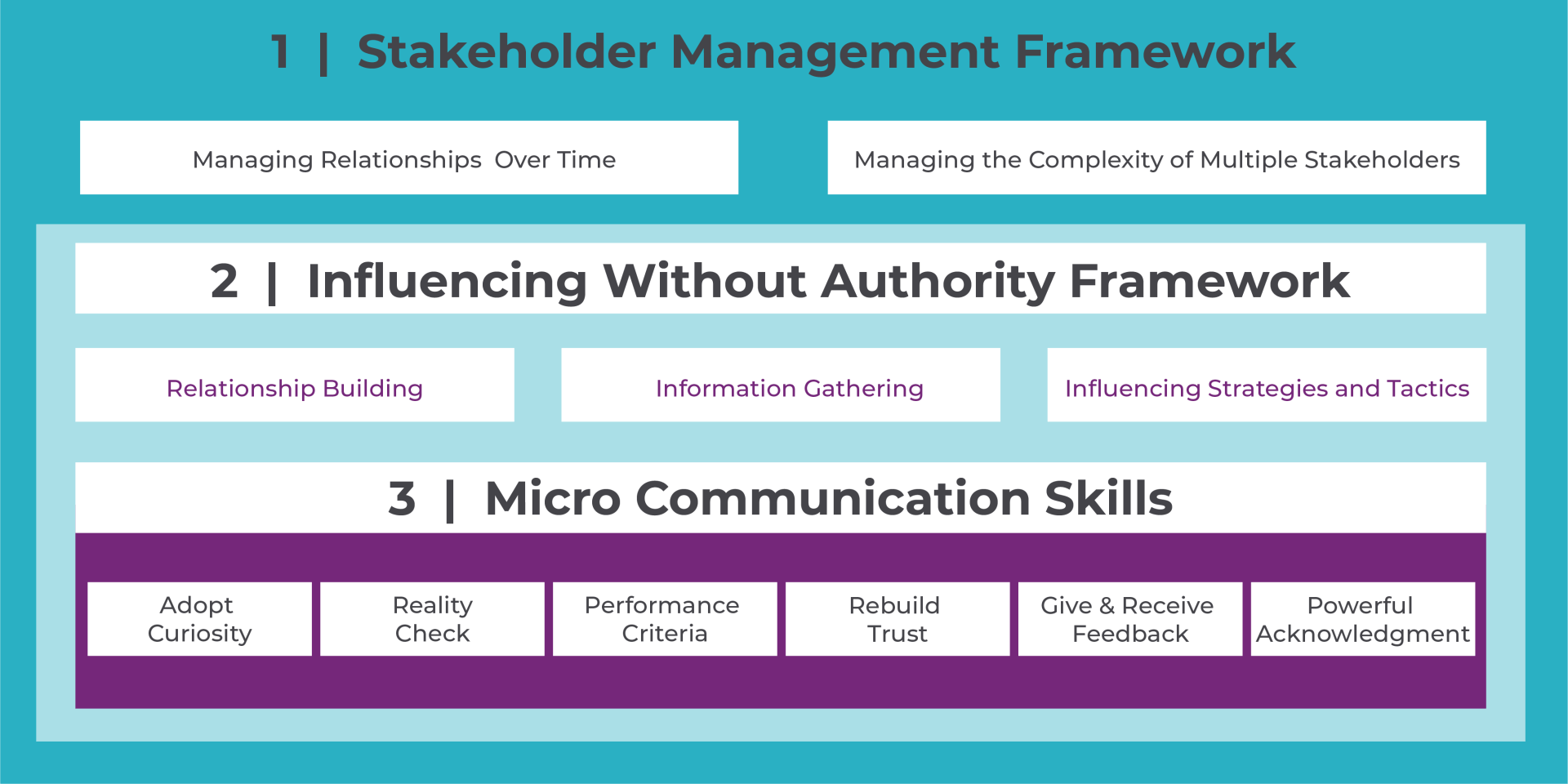Business Partnering Mastery
With Harthill
Practical Skills to master business partnering
The ability to effectively manage relationships with your key business partners is critical to your organisation’s success.
(You already know this.)
Some people are great at managing cross-functional relationships, while others... not so much.
(You already know this too.)
So what’s the secret sauce for being great at managing these important cross-functional relationships?
- Emotional intelligence
- People skills
- Communication skills
- Influencing skills
- Negotiation skills
- Strategic thinking
- Stakeholder management skills
But those are all rather fluffy terms.
How would you measure them? How can people build these skills? Are they innate, or can they be learned?
At Harthill, we have spent decades investigating what specific skills and tools it takes to create great relationships with your business partners.
And we’ve developed a training programme that makes those skills easy to learn and put into practice in real life situations.
Here are the key things we teach in this programme
- A small number of very specific Micro Communication Skills that can be used in almost any communication situation to build strong, trusting relationships
- A framework for Influencing Without Authority that can be used to develop strategies and plans for effectively influencing stakeholders
- A strategic Stakeholder Management Framework that can be used for strategic planning, tracking and ongoing management of complex multi-stakeholder situations
These are not vague concepts, and we don’t talk about philosophy or psychology in our programmes. They are all specific and learnable behaviours and frameworks. We focus entirely on the practical and actionable.
The tools and frameworks are carefully designed to fit together into a coherent whole, making them easy to learn, remember and apply in action.
The Micro Communication Skills provide the foundation. Everything else is built on these.
The Influencing Without Authority Framework addresses the most challenging influencing situation: where you don’t have any direct authority over stakeholders. It provides a framework for strategizing and planning how to influence stakeholders, along with practical tools and techniques to effectively influence stakeholders.
The Stakeholder Management Framework gives the strategic view of strategic alliance management, and we provide tools and templates for mapping, tracking and managing multiple stakeholders.

1 |
Stakeholder Management Framework
Effective stakeholder management requires both a strategic perspective and a tactical approach.
At the strategic level, stakeholder relationships evolve over time, and the appropriate tactics change as the maturity and situational context of the relationship changes.
At the tactical level, you have to be able to track and manage multiple projects and relationships, so that you can focus your time and efforts on the most important tactical actions any given day or week.
This is where Stakeholder Management Framework comes in.
There are two components to our Stakeholder Management Framework:
- Tracking and managing individual stakeholder relationships as they develop and evolve over time
- Tools for tracking and managing the complexity of dealing with dozens, or even hundreds of individual stakeholders across multiple projects
Tracking and Managing Stakeholders Over Time
In broad terms, any given stakeholder relationship can be in one of three phases at any given time:
- Launch - Launching new relationships and setting clear expectations and plans.
- Mend - Sometimes things go wrong, trust is broken, and a relationship needs to be ‘mended’. Then plans and expectations need to be reset.
- Manage - Ongoing management of a relationship that is moving along just fine.
In the programme, we provide specific, step-by-step processes for dealing with relationships in each of these three phases.
Managing Multiple Stakeholders and Projects
When you’re managing multiple projects, each with their own sets of stakeholders, you can end up with dozens or even hundreds of different individual stakeholders that you have to manage on a day-to-day basis.
Just keeping track of who to focus on and what to do next on any given day can become a nightmare.
So, we provide frameworks for:
- Tracking multiple stakeholders over time
- Prioritising which stakeholders need the most attention at any given time
- Mapping out and tracking the next action items for each stakeholder
.... and identifying potential red flags and blind spots that need to be addressed.
We provide visual tools for tracking stakeholder maps (A3 printed sheets).
Those serve as training wheels for learning to think strategically about stakeholder mapping and management.
But when things get really complicated, paper just doesn’t cut it.
So we also provide Google Sheets templates for tracking and managing the most complicated stakeholder management situations.
Together, these tools give people a way to think strategically about complex stakeholder situations, and act tactically, making the right move at the right time, to optimise outcomes.
2 |
Influencing Without Authority Framework
> Influencing with authority is relatively easy - as a last resort, you can just tell people what you want them to do.
> Influencing without authority is much trickier. If you try to tell people what to do, you’ll likely get backlash. And simple tactics like just asking for what you want may occasionally work, but often gets you nowhere.
So how can you effectively influence when you don’t have any authority?
This is where the Influencing Without Authority Framework comes in.
We address three areas in our Influencing Without Authority Framework:
3 |
Micro Communication Skills
The essential micro communication skills we teach are:
Overall Impact
People who have participated in this programme in the past have told us that it helped them improve:
Emotional intelligence
People skills
Communication skills
Influencing skills
Negotiation skills
Strategic thinking
Stakeholder management skills
But most importantly, they tell us that they learned practical skills and frameworks that they are still using in their real work situations today - often over a decade or more after participating in the programme.
References available upon request.
Delivery Options
- We customise every programme to the specific needs and environment of the client
- We deliver programmes both in person and online
- We would be happy to talk with you to discuss what format and delivery schedule would work for your organisation






